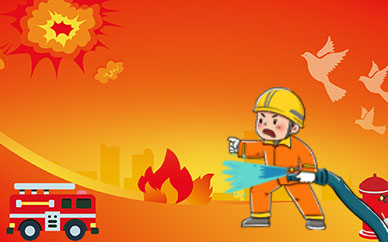每日热门:英文小说《On the Divide》的作者是谁?作者基本信息简介
英文小说On the Divide
英文小说On the Divide
by Willa Cather
 (资料图片)
(资料图片)
薇拉·凯瑟(Willa Cather,1873-1947),美国小说家、短篇小说家、诗人。她生于弗吉尼亚州,9岁时随家移居内布拉斯加州,在西部大草原乡镇里长大。1895年从内布拉斯加大学毕业,对音乐和文学(尤其是亨利·詹姆斯的作品)极感兴趣。后来到匹兹堡一家报社工作,开始文学创作。1900年,她开始发表短篇小说和诗歌,1903年发表诗集《四月的黄昏》(April Twilight)。在那些年月里,她的主要思想是披露西部小城镇文化的落后和思想的狭窄,这表现在她的最著名的短篇故事《雕刻家的葬礼》(“The Sculptor‘s Funeral”)、《华格纳音乐会》(“A Wagner Matinee”)等作品中。1906年她移居纽约,在《麦克卢尔杂志》(McClure’s Magazine)工作,后任总编(1908-1911)。在此期间,她结识了著名乡土文学作家萨拉·奥恩·朱厄特(Sarah Orne Jewett),并听从其劝告,辞去总编职务,悉心从事文学创作,陆续发表了《亚历山大的桥》(Alexander‘s Bridge,1912)、《啊,拓荒者!》(O Pioneers!1913)、《我的安东妮亚》(My Antonia,1918)、《百灵鸟之歌》(The Song of the Lark,1915)、《我们自己人》(One of Ours,1922)、《迷途的女人》(A Lost Lady,1923)、《教授的住宅》(The Professor’s House,1925)及《大主教之死》(Death Comes For the Archbishop,1927)等作品。凯瑟还发表了4部短篇小说集和几部中长篇小说。
Near Rattlesnake Creek, on the side of a little draw stood Canute"s shanty. North, east, south, stretched the level Nebraska plain of long rust-red grass that undulated constantly in the wind. To the west the ground was broken and rough, and a narrow strip of timber wound along the turbid, muddy little stream that had scarcely ambition enough to crawl over its black bottom. If it had not been for the few stunted cottonwoods and elms that grew along its banks, Canute would have shot himself years ago. The Norwegians are a timber-loving people, and if there is even a turtle pond with a few plum bushes around it they seem irresistibly drawn toward it.
As to the shanty itself, Canute had built it without aid of any kind, for when he first squatted along the banks of Rattlesnake Creek there was not a human being within twenty miles. It was built of logs split in halves, the chinks stopped with mud and plaster. The roof was covered with earth and was supported by one gigantic beam curved in the shape of a round arch. It was almost impossible that any tree had ever grown in that shape. The Norwegians used to say that Canute had taken the log across his knee and bent it into the shape he wished. There were two rooms, or rather there was one room with a partition made of ash saplings interwoven and bound together like big straw basket work. In one corner there was a cook stove, rusted and broken. In the other a bed made of unplaned planks and poles. it was fully eight feet long, and upon it was a heap of dark bed clothing. There was a chair and a bench of colossal proportions. There was an ordinary kitchen cupboard with a few cracked dirty dishes in it, and beside it on a tall box a tin washbasin. Under the bed was a pile of pint flasks, some broken, some whole, all empty. On the wood box lay a pair of shoes of almost incredible dimensions. On the wall hung a saddle, a gun, and some ragged clothing, conspicuous among which was a suit of dark cloth, apparently new, with a paper collar carefully wrapped in a red silk handkerchief and pinned to the sleeve. Over the door hung a wolf and a badger skin, and on the door itself a brace of thirty or forty snake skins whose noisy tails rattled ominously every time it opened. The strangest things in the shanty were the wide windowsills. At first glance they looked as though they had been ruthlessly hacked and mutilated with a hatchet, but on closer inspection all the notches and holes in the wood took form and shape. There seemed to be a series of pictures. They were, in a rough way, artistic, but the figures were heavy and labored, as though they had been cut very slowly and with very awkward instruments. There were men plowing with little horned imps sitting on their shoulders and on their horses" heads. There were men praying with a skull hanging over their heads and little demons behind them mocking their attitudes. There were men fighting with big serpents, and skeletons dancing together. All about these pictures were blooming vines and foliage such as never grew in this world, and coiled among the branches of the vines there was always the scaly body of a serpent, and behind every flower there was a serpent"s head. It was a veritable Dance of Death by one who had felt its sting. In the wood box lay some boards, and every inch of them was cut up in the same manner. Sometimes the work was very rude and careless, and looked as though the hand of the workman had trembled. It would sometimes have been hard to distinguish the men from their evil geniuses but for one fact, the men were always grave and were either toiling or praying, while the devils were always smiling and dancing. Several of these boards had been split for kindling and it was evident that the artist did not value his work highly.
It was the first day of winter on the Divide. Canute stumbled into his shanty carrying a basket of. cobs, and after filling the stove, sat down on a stool and crouched his seven foot frame over the fire, staring drearily out of the window at the wide gray sky. He knew by heart every individual clump of bunch grass in the miles of red shaggy prairie that stretched before his cabin. He knew it in all the deceitful loveliness of its early summer, in all the bitter barrenness of its autumn. He had seen it smitten by all the plagues of Egypt. He had seen it parched by drought, and sogged by rain, beaten by hail, and swept by fire, and in the grasshopper years he had seen it eaten as bare and clean as bones that the vultures have left. After the great fires he had seen it stretch for miles and miles, black and smoking as the floor of hell.
He rose slowly and crossed the room, dragging his big feet heavily as though they were burdens to him. He looked out of the window into the hog corral and saw the pigs burying themselves in the straw before the shed. The leaden gray clouds were beginning to spill themselves, and the snow flakes were settling down over the white leprous patches of frozen earth where the hogs had gnawed even the sod away. He shuddered and began to walk, trampling heavily with his ungainly feet. He was the wreck of ten winters on the Divide and he knew what that meant. Men fear the winters of the Divide as a child fears night or as men in the North Seas fear the still dark cold of the polar twilight. His eyes fell upon his gun, and he took it down from the wall and looked it over. He sat down on the edge of his bed and held the barrel towards his face, letting his forehead rest upon it, and laid his finger on the trigger. He was perfectly calm, there was neither passion nor despair in his face, but the thoughtful look of a man who is considering. Presently he laid down the gun, and reaching into the cupboard, drew out a pint bottle of raw white alcohol. Lifting it to his lips, he drank greedily. He washed his face in the tin basin and combed his rough hair and shaggy blond beard. Then he stood in uncertainty before the suit of dark clothes that hung on the wall. For the fiftieth time he took them in his hands and tried to summon courage to put them on. He took the paper collar that was pinned to the sleeve of the coat and cautiously slipped it under his rough beard, looking with timid expectancy into the cracked, splashed glass that hung over the bench. With a short laugh he threw it down on the bed, and pulling on his old black hat, he went out, striking off across the level.
It was a physical necessity for him to get away from his cabin once in a while. He had been there for ten years, digging and plowing and sowing, and reaping what little the hail and the hot winds and the frosts left him to reap. Insanity and suicide are very common things on the Divide. They come on like an epidemic in the hot wind season. Those scorching dusty winds that blow up over the bluffs from Kansas seem to dry up the blood in men"s veins as they do the sap in the corn leaves. Whenever the yellow scorch creeps down over the tender inside leaves about the ear, then the coroners prepare for active duty; for the oil of the country is burned out and it does not take long for the flame to eat up the wick. It causes no great sensation there when a Dane is found swinging to his own windmill tower, and most of the Poles after they have become too careless and discouraged to shave themselves keep their razors to cut their throats with.
It may be that the next generation on the Divide will be very happy, but the present one came too late in life. It is useless for men that have cut hemlocks among the mountains of Sweden for forty years to try to be happy in a country as flat and gray and naked as the sea. It is not easy for men that have spent their youth fishing in the Northern seas to be content with following a plow, and men that have served in the Austrian army hate hard work and coarse clothing on the loneliness of the plains, and long for marches and excitement and tavern company and pretty barmaids. After a man has passed his fortieth birthday it is not easy for him to change the habits and conditions of his life. Most men bring with them to the Divide only the dregs of the lives that they have squandered in other lands and among other peoples.
Canute Canuteson was as mad as any of them, but his madness did not take the form of suicide or religion but of alcohol. He had always taken liquor when he wanted it, as all Norwegians do, but after his first year of solitary life he settled down to it steadily. He exhausted whisky after a while, and went to alcohol, because its effects were speedier and surer. He was a big man and with a terrible amount of resistant force, and it took a great deal of alcohol even to move him. After nine years of drinking, the quantities he could take would seem fabulous to an ordinary drinking man. He never let it interfere with his work, he generally drank at night and on Sundays. Every night, as soon as his chores were done, he began to drink. While he was able to sit up he would play on his mouth harp or hack away at his window sills with his jackknife. When the liquor went to his head he would lie down on his bed and stare out of the window until he went to sleep. He drank alone and in solitude not for pleasure or good cheer, but to forget the awful loneliness and level of the Divide. Milton made a sad blunder when he put mountains in hell. Mountains postulate faith and aspiration. All mountain peoples are religious. It was the cities of the plains that, because of their utter lack of spirituality and the mad caprice of their vice, were cursed of God.
Alcohol is perfectly consistent in its effects upon man. Drunkenness is merely an exaggeration. A foolish man drunk becomes maudlin; a bloody man, vicious; a coarse man, vulgar. Canute was none of these, but he was morose and gloomy, and liquor took him through all the hells of Dante. As he lay on his giant"s bed all the horrors of this world and every other were laid bare to his chilled senses. He was a man who knew no joy, a man who toiled in silence and bitterness. The skull and the serpent were always before him, the symbols of eternal futileness and of eternal hate.
When the first Norwegians near enough to be called neighbors came, Canute rejoiced, and planned to escape from his bosom vice. But he was not a social man by nature and had not the power of drawing out the social side of other people. His new neighbors rather feared him because of his great strength and size, his silence and his lowering brows. Perhaps, too, they knew that he was mad, mad from the eternal treachery of the plains, which every spring stretch green and rustle with the promises of Eden, showing long grassy lagoons full of clear water and cattle whose hoofs are stained with wild roses. Before autumn the lagoons are dried up, and the ground is burnt dry and hard until it blisters and cracks open.
So instead of becoming a friend and neighbor to the men that settled about him, Canute became a mystery and a terror. They told awful stories of his size and strength and of the alcohol he drank.
They said that one night, when he went out to see to his horses just before he went to bed, his steps were unsteady and the rotten planks of the floor gave way and threw him behind the feet of a fiery young stallion. His foot was caught fast in the floor, and the nervous horse began kicking frantically. When Canute felt the blood trickling down into his eyes from a scalp wound in his head, he roused himself from his kingly indifference, and with the quiet stoical courage of a drunken man leaned forward and wound his arms about the horse"s hind legs and held them against his breast with crushing embrace. All through the darkness and cold of the night he lay there, matching strength against strength. When little Jim Peterson went over the next morning at four o"clock to go with him to the Blue to cut wood, he found him so, and the horse was on its fore knees, trembling and whinnying with fear. This is the story the Norwegians tell of him, and if it is true it is no wonder that they feared and hated this Holder of the Heels of Horses.
One spring there moved to the next "eighty" a family that made a great change in Canute"s life. Ole Yensen was too drunk most of the time to be afraid of any one, and his wife Mary was too garrulous to be afraid of any one who listened to her talk, and Lena, their pretty daughter, was not afraid of man nor devil. So it came about that Canute went over to take his alcohol with Ole oftener than he took it alone, After a while the report spread that he was going to marry Yensen"s daughter, and the Norwegian girls began to tease Lena about the great bear she was going to keep house for. No one could quite see how the affair had come about, for Canute"s tactics of courtship were somewhat peculiar. He apparently never spoke to her at all: he would sit for hours with Mary chattering on one side of him and Ole drinking on the other and watch Lena at her work. She teased him, and threw flour in his face and put vinegar in his coffee, but he took her rough jokes with silent wonder, never even smiling. He took her to church occasionally, but the most watchful and curious people never saw him speak to her. He would sit staring at her while she giggled and flirted with the other men.
Next spring Mary Lee went to town to work in a steam laundry. She came home every Sunday, and always ran across to Yensens to startle Lena with stories of ten cent theaters, firemen"s dances, and all the other esthetic delights of metropolitan life. In a few weeks Lena"s head was completely turned, and she gave her father no rest until he let her go to town to seek her fortune at the ironing board. From the time she came home on her first visit she began to treat Canute with contempt. She had bought a plush cloak and kid gloves, had her clothes made by the dress maker, and assumed airs and graces that made the other women of the neighborhood cordially detest her. She generally brought with her a young man from town who waxed his mustache and wore a red necktie, and she did not even introduce him to Canute.
The neighbors teased Canute a good deal until he knocked one of them down. He gave no sign of suffering from her neglect except that he drank more and avoided the other Norwegians more carefully than ever, He lay around in his den and no one knew what he felt or thought, but little Jim Peterson, who had seen him glowering at Lena in church one Sunday when she was there with the town man, said that he would not give an acre of his wheat for Lena"s life or the town chap"s either; and Jim"s wheat was so wondrously worthless that the statement was an exceedingly strong one.
Canute had bought a new suit of clothes that looked as nearly like the town man I s as possible. They had cost him half a millet crop; for tailors are not accustomed to fitting giants and they charge for it. He had hung those clothes in his shanty two months ago and had never put them on, partly from fear of ridicule, partly from discouragement, and partly because there was something in his own soul that revolted at the littleness of the device.
Lena was at home just at this time. Work was slack in the laundry and Mary had not been well, so Lena stayed at home, glad enough to get an opportunity to torment Canute once more.
She was washing in the side kitchen, singing loudly as she worked. Mary was on her knees, blacking the stove and scolding violently about the young man who was coming out from town that night. The young man had committed the fatal error of laughing at Mary"s ceaseless babble and had never been forgiven.
"He is no good, and you will come to a bad end by running with him! I do not see why a daughter of mine should act so. I do not see why the Lord should visit such a punishment upon me as to give me such a daughter. There are plenty of good men you can marry."
Lena tossed her head and answered curtly, "I don"t happen to want to marry any man right away, and so long as Dick dresses nice and has plenty of money to spend, there is no harm in my going with him."
"Money to spend? Yes, and that is all he does with it I"ll be bound. You think it very fine now, but you will change your tune when you have been married five years and see your children running naked and your cupboard empty. Did Anne Hermanson come to any good end by marrying a town man?"
"I don"t know anything about Anne Hermanson, but I know any of the laundry girls would have Dick quick enough if they could get him."
"Yes, and a nice lot of store clothes huzzies you are too. Now there is Canuteson who has an "eighty" proved up and fifty head of cattle and--"
"And hair that ain"t been cut since he was a baby, and a big dirty beard, and he wears overalls on Sundays, and drinks like a pig. Besides he will keep. I can have all the fun I want, and when I am old and ugly like you he can have me and take care of me.
The Lord knows there ain"t nobody else going to marry him."
Canute drew his hand back from the latch as though it were red hot. He was not the kind of man to make a good eavesdropper, and he wished he had knocked sooner. He pulled himself together and struck the door like a battering ram. Mary jumped and opened it with a screech.
"God! Canute, how you scared us! I thought it was crazy Lou-- he has been tearing around the neighborhood trying to convert folks. I am afraid as death of him. He ought to be sent off, I think. He is just as liable as not to kill us all, or burn the barn, or poison the dogs. He has been worrying even the poor minister to death, and he laid up with the rheumatism, too! Did you notice that he was too sick to preach last Sunday? But don"t stand there in the cold, come in. Yensen isn"t here, but he just went over to Sorenson"s for the mail; he won"t be gone long. Walk right in the other room and sit down."
Canute followed her, looking steadily in front of him and not noticing Lena as he passed her. But Lena"s vanity would not allow him to pass unmolested. She took the wet sheet she was wringing out and cracked him across the face with it, and ran giggling to the other side of the room. The blow stung his cheeks and the soapy water flew in his eves, and he involuntarily began rubbing them with his hands. Lena giggled with delight at his discomfiture, and the wrath in Canute"s face grew blacker than ever. A big man humiliated is vastly more undignified than a little one. He forgot the sting of his face in the bitter consciousness that he had made a fool of himself He stumbled blindly into the living room, knocking his head against the door jamb because he forgot to stoop. He dropped into a chair behind the stove, thrusting his big feet back helplessly on either side of him.
Ole was a long time in coming, and Canute sat there, still and silent, with his hands clenched on his knees, and the skin of his face seemed to have shriveled up into little wrinkles that trembled when he lowered his brows. His life had been one long lethargy of solitude and alcohol, but now he was awakening, and it was as when the dumb stagnant heat of summer breaks out into thunder.
When Ole came staggering in, heavy with liquor, Canute rose at once.
"Yensen," he said quietly, "I have come to see if you will let me marry your daughter today."
"Today!" gasped Ole.
"Yes, I will not wait until tomorrow. I am tired of living alone."
Ole braced his staggering knees against the bedstead, and stammered eloquently: "Do you think I will marry my daughter to a drunkard? a man who drinks raw alcohol? a man who sleeps with rattle snakes? Get out of my house or I will kick you out for your impudence." And Ole began looking anxiously for his feet.
Canute answered not a word, but he put on his hat and went out into the kitchen. He went up to Lena and said without looking at her, "Get your things on and come with me!"
The tones of his voice startled her, and she said angrily, dropping the soap, "Are you drunk?"
"If you do not come with me, I will take you--you had better come," said Canute quietly.
She lifted a sheet to strike him, but he caught her arm roughly and wrenched the sheet from her. He turned to the wall and took down a hood and shawl that hung there, and began wrapping her up. Lena scratched and fought like a wild thing. Ole stood in the door, cursing, and Mary howled and screeched at the top of her voice. As for Canute, he lifted the girl in his arms and went out of the house. She kicked and struggled, but the helpless wailing of Mary and Ole soon died away in the distance, and her face was held down tightly on Canute"s shoulder so that she could not see whither he was taking her. She was conscious only of the north wind whistling in her ears, and of rapid steady motion and of a great breast that heaved beneath her in quick, irregular breaths. The harder she struggled the tighter those iron arms that had held the heels of horses crushed about her, until she felt as if they would crush the breath from her, and lay still with fear. Canute was striding across the level fields at a pace at which man never went before, drawing the stinging north winds into his lungs in great gulps. He walked with his eyes half closed and looking straight in front of him, only lowering them when he bent his head to blow away the snow flakes that settled on her hair. So it was that Canute took her to his home, even as his bearded barbarian ancestors took the fair frivolous women of the South in their hairy arms and bore them down to their war ships. For ever and anon the soul becomes weary of the conventions that are not of it, and with a single stroke shatters the civilized lies with which it is unable to cope, and the strong arm reaches out and takes by force what it cannot win by cunning.
When Canute reached his shanty he placed the girl upon a chair, where she sat sobbing. He stayed only a few minutes. He filled the stove with wood and lit the lamp, drank a huge swallow of alcohol and put the bottle in his pocket. He paused a moment, staring heavily at the weeping girl, then he went off and locked the door and disappeared in the gathering gloom of the night.
Wrapped in flannels and soaked with turpentine, the little Norwegian preacher sat reading his Bible, when he heard a thundering knock at his door, and Canute entered, covered with snow and his beard frozen fast to his coat.
"Come in, Canute, you must be frozen," said the little man, shoving a chair towards his visitor.
Canute remained standing with his hat on and said quietly, "I want you to come over to my house tonight to marry me to Lena Yensen."
"Have you got a license, Canute?"
"No, I don"t want a license. I want to be married."
"But I can"t marry you without a license, man. it would not be legal."
A dangerous light came in the big Norwegian"s eye. "I want you to come over to my house to marry me to Lena Yensen."
"No, I can"t, it would kill an ox to go out in a storm like this, and my rheumatism is bad tonight."
"Then if you will not go I must take you," said Canute with a sigh.
He took down the preacher"s bearskin coat and bade him put it on while he hitched up his buggy. He went out and closed the door softly after him. Presently he returned and found the frightened minister crouching before the fire with his coat lying beside him. Canute helped him put it on and gently wrapped his head in his big muffler. Then he picked him up and carried him out and placed him in his buggy. As he tucked the buffalo robes around him be said: "Your horse is old, he might flounder or lose his way in this storm. I will lead him."
The minister took the reins feebly in his hands and sat shivering with the cold. Sometimes when there was a lull in the wind, he could see the horse struggling through the snow with the man plodding steadily beside him. Again the blowing snow would hide them from him altogether. He had no idea where they were or what direction they were going. He felt as though he were being whirled away in the heart of the storm, and he said all the prayers he knew. But at last the long four miles were over, and Canute set him down in the snow while he unlocked the door. He saw the bride sitting by the fire with her eyes red and swollen as though she had been weeping. Canute placed a huge chair for him, and said roughly,--
"Warm yourself."
Lena began to cry and moan afresh, begging the minister to take her home. He looked helplessly at Canute. Canute said simply,
"If you are warm now, you can marry us."
"My daughter, do you take this step of your own free will?" asked the minister in a trembling voice.
"No, sir, I don"t, and it is disgraceful he should force me into it! I won"t marry him."
"Then, Canute, I cannot marry you," said the minister, standing as straight as his rheumatic limbs would let him.
"Are you ready to marry us now, sir?" said Canute, laying one iron hand on his stooped shoulder. The little preacher was a good man, but like most men of weak body he was a coward and had a horror of physical suffering, although he had known so much of it. So with many qualms of conscience he began to repeat the marriage service. Lena sat sullenly in her chair, staring at the fire. Canute stood beside her, listening with his head bent reverently and his hands folded on his breast. When the little man had prayed and said amen, Canute began bundling him up again.
"I will take you home, now," he said as he carried him out and placed him in his buggy, and started off with him through the fury of the storm, floundering among the snow drifts that brought even the giant himself to his knees.
After she was left alone, Lena soon ceased weeping. She was not of a particularly sensitive temperament, and had little pride beyond that of vanity. After the first bitter anger wore itself out, she felt nothing more than a healthy sense of humiliation and defeat. She had no inclination to run away, for she was married now, and in her eyes that was final and all rebellion was useless. She knew nothing about a license, but she knew that a preacher married folks. She consoled herself by thinking that she had always intended to marry Canute someday, anyway.
She grew tired of crying and looking into the fire, so she got up and began to look about her. She had heard queer tales about the inside of Canute"s shanty, and her curiosity soon got the better of her rage. One of the first things she noticed was the new black suit of clothes hanging on the wall. She was dull, but it did not take a vain woman long to interpret anything so decidedly flattering, and she was pleased in spite of herself. As she looked through the cupboard, the general air of neglect and discomfort made her pity the man who lived there.
"Poor fellow, no wonder he wants to get married to get somebody to wash up his dishes. Batchin"s pretty hard on a man."
It is easy to pity when once one"s vanity has been tickled. She looked at the windowsill and gave a little shudder and wondered if the man were crazy. Then she sat down again and sat a long time wondering what her Dick and Ole would do.
"It is queer Dick didn"t come right over after me. He surely came, for he would have left town before the storm began and he might just as well come right on as go back. If he"d hurried he would have gotten here before the preacher came. I suppose he was afraid to come, for he knew Canuteson could pound him to jelly, the coward!" Her eyes flashed angrily.
The weary hours wore on and Lena began to grow horribly lonesome. It was an uncanny night and this was an uncanny place to be in. She could hear the coyotes howling hungrily a little way from the cabin, and more terrible still were all the unknown noises of the storm. She remembered the tales they told of the big log overhead and she was afraid of those snaky things on the windowsills. She remembered the man who had been killed in the draw, and she wondered what she would do if she saw crazy Lou"s white face glaring into the window. The rattling of the door became unbearable, she thought the latch must be loose and took the lamp to look at it. Then for the first time she saw the ugly brown snake skins whose death rattle sounded every time the wind jarred the door.
"Canute, Canute!" she screamed in terror.
Outside the door she heard a heavy sound as of a big dog getting up and shaking himself. The door opened and Canute stood before her, white as a snow drift.
"What is it?" he asked kindly.
"I am cold," she faltered.
He went out and got an armful of wood and a basket of cobs and filled the stove. Then he went out and lay in the snow before the door. Presently he heard her calling again.
"What is it?" he said, sitting up.
"I"m so lonesome, I"m afraid to stay in here all alone."
"I will go over and get your mother." And he got up.
"She won"t come."
"I"ll bring her," said Canute grimly.
"No, no. I don"t want her, she will scold all the time."
"Well, I will bring your father."
She spoke again and it seemed as though her mouth was close up to the key-hole. She spoke lower than he had ever heard her speak before, so low that he had to put his ear up to the lock to hear her.
"I don"t want him either, Canute,--I"d rather have you."
For a moment she heard no noise at all, then something like a groan. With a cry of fear she opened the door, and saw Canute stretched in the snow at her feet, his face in his hands, sobbing on the doorstep.
图片
-
 我发现互联网工作的性价比还
我发现互联网工作的性价比还  【直播吧评选】3月28日NBA最
【直播吧评选】3月28日NBA最  当前快播:网信办:防止泄露
当前快播:网信办:防止泄露
-
 严厉打击不合理低价游、杜绝
严厉打击不合理低价游、杜绝  世界热资讯!花期长好看又好
世界热资讯!花期长好看又好  win10电脑自动开机怎么取消_
win10电脑自动开机怎么取消_  可乐鸡翅做法大全家常_可乐
可乐鸡翅做法大全家常_可乐  焦点速读:3月27日基金净值
焦点速读:3月27日基金净值  聚焦:黄色的对比色是什么颜
聚焦:黄色的对比色是什么颜 -
 山西省2022年国家统一法律职
山西省2022年国家统一法律职  互联网保险创新的又一样本:
互联网保险创新的又一样本:  头条:三星发布便携固态硬盘T
头条:三星发布便携固态硬盘T  天天快看:平顶山市首个全国
天天快看:平顶山市首个全国  3.27黄金原油行情走势及今日
3.27黄金原油行情走势及今日  一年之计在于春,春季运动,
一年之计在于春,春季运动, -
 西部材料股东户数下降3.70%
西部材料股东户数下降3.70%  主题产业园新引进 项目最高
主题产业园新引进 项目最高  【环球聚看点】Java循环运行
【环球聚看点】Java循环运行  MS软件gulp模块中文翻译6-设
MS软件gulp模块中文翻译6-设  罐头热销海外的启示
罐头热销海外的启示  琵琶行全文朗诵(琵的组词)
琵琶行全文朗诵(琵的组词)
精彩推送
- 坏人用英语怎么说?坏人用英语的说法大全_环球讯息
- 重阳节有什么活动?重阳节活动方案6篇(精选)
- 天天讯息:成功的滋味400字作文3篇介绍 感兴趣的小伙伴快来看看吧!
- 晗是什么意思?晗的基本字义是什么?|世界新要闻
- 城管年终工作怎么总结?城管年终工作总结范文20篇 全球新资讯
- 每日热门:英文小说《On the Divide》的作者是谁?作者基本信息简介
- 剑桥雅思阅读6原文及答案解析(test4)分享 感兴趣的小伙伴快来看看吧!
- 天天快报!支付宝语音到账提醒怎么设置?设置步骤是什么?
- docx是什么格式的文件?docx和doc格式的区别有哪些?-全球速讯
- 想开淘宝店怎么注册?淘宝店的注册流程是什么?-当前快播
- 天天观速讯丨如何设置定时器?怎么取消定时器关闭时间?
- 【全球聚看点】教你如何用密码登录老师的电脑?具体操作方法是什么?
- 世界微头条丨《潇然梦》是什么小说?《潇然梦》讲述了怎样的故事?
- 章鱼怎么做?章鱼的做法是什么?_当前消息
- 幻灯片切换效果怎么设置?设置方法是什么?-天天日报
- 环球消息!ProEditor下载教程详解 有需要的小伙伴快来看看吧!
- 《极速赛车手》的导演是谁?影片主要讲述了什么?|每日资讯
- 手机突然黑屏开不了机是怎么回事?原因是什么?
- 煎饼你喜欢吃吗?煎饼面糊怎么调? 世界速看料
- 世界热头条丨美团外卖怎么加入骑手?具体操作方法是什么?
- 环球快资讯:身份证怎么查询手机号?身份证查询手机号的步骤是什么?
- qq成长值怎么查询?qq成长值查询方法是什么?
- 《Windows CE工程实践完全解析》的作者是谁?《Windows CE工程实践完全解析》讲述了什么?|天天热点评
- 飞机上能带充电宝吗?充电宝能不能托运? 消息
- 世界快看:微博怎么保存视频?微博保存视频的步骤是什么?
- 全球视讯!知了怎么养?知了的养殖技术详解
- 环球时讯:旷工三天自动离职有工资吗?相关内容快来了解下吧!
- 我发现互联网工作的性价比还在持续走低,没看到好转的迹象
- 康希诺2022年亏损9.09亿 经营性现金净额-18.5亿_环球新消息
- 宏观环境因素包括哪些?宏观环境的作用是什么?
- 轧空行情是什么意思?轧空无法平仓的后果是什么?
- 样本容量n的计算公式是什么?合理确定样本容量的意义是什么?
- 样本容量有单位吗?样本容量和样本是什么意思?举例说明
- 资产支持票据是什么意思?资产支持票据的特点不包括什么?
- 资产支持票据和资产支持证券区别是什么?资产支持票据现状怎么样?
- 范围经济如何实现经济发展?范围经济的例子有什么?
- 范围经济与规模经济的区别在哪?范围经济名词解释一览
- 会展经济与低碳经济的联系是什么?会展经济与管理属于什么类别?
- 财政支出英语怎么讲?财政收入和财政支出的关系是什么?
- 江阴银行2022年净利增27% 计提信用减值损失8.96亿 短讯
- 张家港行2022年净利增29% 计提信用减值损失14.3亿
- 【直播吧评选】3月28日NBA最佳球员-天天新消息
- 创新能力再获认可,北汽新能源荣登重量级榜单
- 财政支出是什么意思?财政支出的应用范围主要包括哪些?
- 热电效应包括哪三种效应?热电效应与应用实验报告怎么写?
- 什么是热电效应?热电效应工作原理是什么?热电效应的作用介绍
- iPhone折旧率仅为安卓一半是真的吗?苹果12用一年电池87半折旧多少钱?
- otc交易合法吗?otc交易和c2c交易的区别是什么?
- 奥肯定律描述了( )和( )之间的关系?奥肯定律适用于中国吗?
- 华润万象生活:2022年实现收入120.16亿元
- 结合律是不是必须有括号?怎么区分结合律和交换律?
- 结合律和分配律的公式是什么?乘法结合律的本质是什么?
- 楚天科技买楚天飞云其余49%股权获通过 国金证券建功 今日看点
- 房企融资明显恢复 利率整体较低 天天看热讯
- 郑州全面开展提取住房公积金按期付房租业务|每日播报
- 女员工请假做试管婴儿被拒遭辞退怎么回事?要做试管单位不批假怎么办?
- 商业信用属于短期筹资方式吗?商业信用的特点和局限性各是什么?
- 当前快播:网信办:防止泄露未成年人隐私的欺凌视频传播
- 商业信用融资内容包括哪些?商业信用融资规模主要受哪些因素制约?
- 燃动新商机,再掀新热潮!爱采购“产业带提振计划”落地珠三角!
- 外商直接投资额怎么计算?外商直接投资企业如何纳税?
- 外商直接投资下降原因有哪些?对外直接投资和外商直接投资的区别介绍
- 严厉打击不合理低价游、杜绝强迫消费……海南全面开展旅游消费市场综合整治|新要闻
- 昆仑太科终止科创板IPO 保荐机构为中信证券:环球速讯
- 快报:3月28日人民币对美元汇率中间价下调35个基点
- 天天热资讯!芯德科技终止创业板IPO 保荐机构为招商证券
- 环球精选!美邦科技过会:今年IPO过关第74家 中金公司过2单
- 日丰股份实控人冯就景减持1.16%股份 套现4637万元
- 头肩顶的形态特点和分析要点介绍 头肩顶颈线向下倾斜怎么办
- 环球关注:孚诺医药终止创业板IPO 保荐机构为海通证券
- 浙江华远过会:今年IPO过关第71家 海通证券过4单 全球速讯
- 环球视点!上海车展首批展车通关
- 【世界快播报】价格战将如何影响汽车产业——当前汽车市场热点剖析(中)
- 头肩顶是涨还是跌?头肩顶右肩会比左肩高吗?
- 早晨之星的形态特征及后市走势分析 早晨之星选股公式是什么
- 这里的汽车客运是如何“逆袭”的:世界今日报
- 早晨之星与黄昏之星的区别在哪?早晨之星是什么意思?
- 爱得科技终止创业板IPO 保荐机构为德邦证券|每日热门
- 全球观天下!荣盛石化一字涨停 沙特阿美246亿溢价1倍受让10%股权
- 信用货币制度下什么是铸币税 国际铸币税的简单计算方法介绍
- 报告称去年汽车消费存在多方面问题_聚看点
- 创志科技过会:今年IPO过关第72家 东方投行过首单
- 铸币税现在还有吗?铸币税名词解释金融学
- 世界热资讯!花期长好看又好养的花_花期荼蘼
- 期货保证金监控中心密码怎么修改?期货保证金监控中心账号是什么?
- 期货保证金监控中心账单出自哪个部门?期货保证金监控中心是做什么的?
- 股灾是什么意思?股灾一般具有哪些特征?形成股灾的原因介绍
- 98年股灾原因是什么?1998年亚洲金融危机的世界影响有哪些?
- 女子提离职其男友被一并开除是怎么回事?开除证明和离职证明一样吗?
- 最“丑”绿色车牌或在2年内取消是真的吗?新能源车牌怎么这么丑?
- 职场上说背书是什么意思?企业平台背书是什么意思?
- 政府背书是什么意思?保单空白背书是什么意思?
- 贸易商行是做什么的?贸易商行经营范围有哪些?贸易商行取名字大全
- 贸易商的优势和劣势有哪些?贸易商品结构包括哪些?
- 贸易商是什么意思?贸易商和独立分销商一样吗?
- 可持续增长率有什么用?可持续增长率的假设条件有哪些?
- 可持续增长率名词解释是什么?可持续增长率与内含增长率的区别介绍
- win10电脑自动开机怎么取消_win10电脑自动开机 天天百事通
- 天天快消息!炬光科技:国投高科与西高投拟合计减持不超3%股份
- 万高药业营收缓涨销售费高企 实控人低价独享股权激励
金融
财经
要闻
公司
吉卜力工作室如今已加入到主题公园的浪潮,并于11月1日正式对公众开放全球首个项目,将《龙猫》等经典作品的场景复原至现实世界。对于吉卜
详细>>随着在线旅游企业数量的不断增多,售卖不合理低价旅游产品、违规利用用户个人信息等问题也时有发生。11月1日,文旅部发布《文化和旅游部关
详细>>两个小时,这是越南全国首票榴莲从装车到运送至我国广西崇左友谊关口岸的时间。得益于一体化供应链,2021年,中国与越南进出口贸易额达到23
详细>>11月1日,北京商报记者梳理发现,截至9月末,10家A股上市农商行资产规模均有所扩大,重庆农商行、上海农商行仍以万亿元总资产位居前列。营
详细>>西贝餐饮集团(以下简称西贝)在儿童餐的道路上越走越深。11月1日,北京商报记者从西贝获悉,其将推出西贝儿童餐零售产品。目前,部分西贝门
详细>>新一期麻辣粉和逆回购操作如期公布。9月15日,央行发布消息称,为维护银行体系流动性合理充裕,开展4000亿元中期借贷便利(MLF)操作和20亿元
详细>>
















 营业执照公示信息
营业执照公示信息